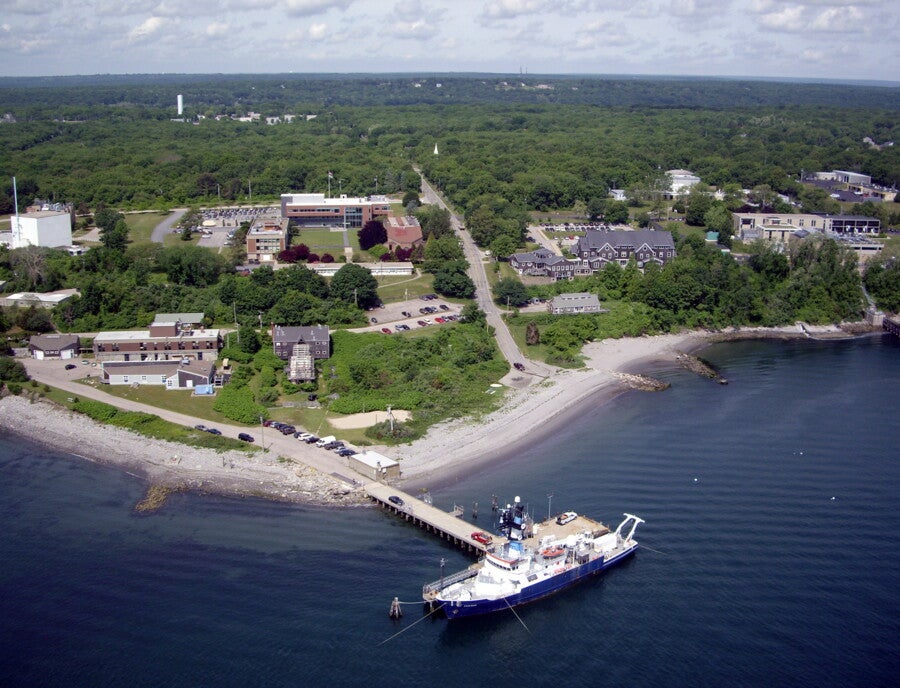June 4, 2020
A statement from URI Graduate School of Oceanography Dean Bruce Corliss.
I am writing to follow up my statement last week in On the Waterfront should you not have had the opportunity to read it. The senseless death of George Floyd has created despair and anger across the country and, as the URI Senior Leadership Team stated in a recent email, is a reminder of the oppression and injustice still too prevalent in our society. The Graduate School of Oceanography and the University of Rhode Island are committed to a more just and equitable society and university community. I write to re-confirm that commitment to promote and respect diversity and justice for all within our campus and within the nation as we struggle to address systemic problems within our society and across the country.
The death of George Floyd and long-standing anti-black racism, together with a lack of progress to address the roots of these crimes, have led to frustration and anger generated by police brutality, racial injustice and a culture among some that condones violence. This anger is also based on societal and structural racism that has pervaded the fabric of America. Societal racism includes inequalities in income/wealth distribution, availability of health care and affordable health insurance, and educational opportunities, and is perpetuated not only by individuals and institutions, but by lawmakers passing legislation that precludes or limits opportunity to minority communities and, in particular, to Black Americans. Politics matter. These societal and financial inequities have existed for a very long time, and the lack of progress to address these inequities is at the core of the problem that the country faces today.
GSO has actively made efforts to attract minority faculty and students in general, and specifically African Americans, to join GSO and will continue to do so. In addition, professional societies have fostered and reinforced the need to increase underrepresented minorities in the sciences, and in particular Black Americans. But, clearly we as an institution and a discipline must hold ourselves accountable and do better. It is time to reflect upon and then redouble our efforts to ensure that current and prospective faculty, students and staff of color feel that they belong and are supported.
The GSO faculty voted last year to remove the GRE test requirement in graduate applications, as this has been shown to be a bias against minority students. This year a NOAA proposal was submitted to recruit and provide support to summer students from the University of Maryland Eastern Shore, a Historically Black College and University (HBCU), as part of our CINAR effort, an effort that follows a commitment we made last year when we submitted the Cooperative Institute proposal. We also reached out this year to another HBCU institution, Elizabeth City University in North Carolina, to inquire about their possible interest in joining the East Coast Oceanographic Consortium with the goal of developing a pipeline of underrepresented students at GSO and other ECOC institutions. In an effort to increase the diversity of future oceanographers, GSO’s NSF-REU program (SURFO) is committed to recruiting students from underrepresented groups. Recruiting at HBCUs and Minority Serving Institutions (MSIs), attending conferences focused on scientists from underrepresented groups (SACNAS) and forming a partnership with the Puerto Rico Louis Stokes Alliance for Minority Participation have begun to effect change. Last summer, half of our SURFO student participants were from underrepresented groups. We look forward to next week when a new cohort begins, with almost half the young scientists from underrepresented groups.
These efforts do not address the inequities and injustices that presently exist with structural racism in America, but are examples of our commitment to recruit and welcome Black students, students of color and other minorities to oceanography with the goal of promoting equity within the science community.
This is the time to address questions of inequity, justice and the rights of all individuals in our society. It is a time for reflection and for discussion, but it is also a time to develop and execute plans to address these issues. Recognizing that the scarcity of Black oceanographers is a result of an unjust K-12 educational system, a key goal of GSO’s outreach efforts is to prioritize access for underrepresented communities to ocean science. GSO will continue to spark partnerships with under-resourced schools throughout Rhode Island and minority serving institutions across the country. We are emboldened to strengthen these efforts.
As part of that effort, GSO will help make meaningful partnerships with minority serving institutions within the East Coast Oceanographic Consortium to develop opportunities for Black and minority students. This summer, we will also share on the GSO website opportunities for discussion on systemic racism offered by the URI’s Office of Community, Equity and Diversity.
There have been many thoughtful statements across the country that address recent disturbing racist acts and the need to confront racial injustice and the culture that fosters it. I would like to share one by Dr. Sudip S.Parikh, CEO of the AAAS, that is an insightful statement about the need to come together in the science community to address the challenges that we are all facing.
GSO is committed to moving forward in a thoughtful and meaningful way in the days and years to come. Please reach out to me and other GSO leaders if you would like to express concerns or suggestions.
Sincerely,
Bruce H. Corliss
Dean, URI Graduate School of Oceanography

